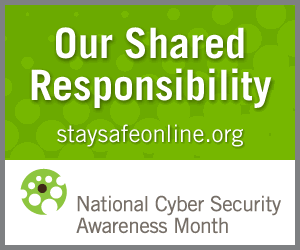Why Cyber Security and a Cyber Security Degree Matter [Video]
Saint Leo's chief information officer talks about why cybersecurity matters and what you can do with a cybersecurity degree.

Saint Leo's chief information officer talks about why cybersecurity matters and what you can do with a cybersecurity degree.


When it comes to cyber risks, no individual, industry, organization or country is immune.
While a national power grid or global financial institution breach could be devastating, think about just your home computer and the amount of sensitive information you have stored on it – income tax files, investment information, and health records – and what it could mean to you, personally, if it were hacked.
The need for cyber security awareness and risk prevention on every level – personal and professional – has never been more critical.
To help meet the demand for qualified cyber security professionals, Saint Leo recently launched a master's in cyber security degree program and opened a new cyber security lab in the Donald R. Tapia School of Business on University Campus. This state-of-the-art center will be accessible to students around the world for conducting cyber security-related simulations when the graduate degree program is available online beginning in March 2015.
The responsibility for cyber security, however, belongs not just to information security professionals, but to everyone who uses the Internet.
That's why the theme for this year's National Cyber Security Awareness Month (NCSAM) is Our Shared Responsibility. Sponsored by the U.S. Department of Homeland Security and the National Cyber Security Alliance every October since 2004, National Cyber Security Awareness Month is a collaborative effort by government and industry to help ensure Americans stay safer and more secure online. (Saint Leo University is a 2014 NCSAM Champion.)
At Saint Leo University, the responsibility for cyber security is also shared among all members of the university community – students, faculty and staff.
The job of securing networks and devices university-wide, however, resides with University Technology Services and, ultimately, Associate Vice President and Chief Information Officer Steven Carroll.
To kick off National Cyber Security Month, Carroll shares his thoughts about cyber security and the cyber security career field.
If you'd like to listen to a specific response in the video, one of these links will take you right to it.
Learn more about National Cyber Security Awareness Month. Visit StaySafeOnline.org.
Other posts you may be interested in reading:
5 Reasons SLU's Cyber Security Program Is Right For You
What Sets Saint Leo's Cyber Security Master's Degree Program Apart?